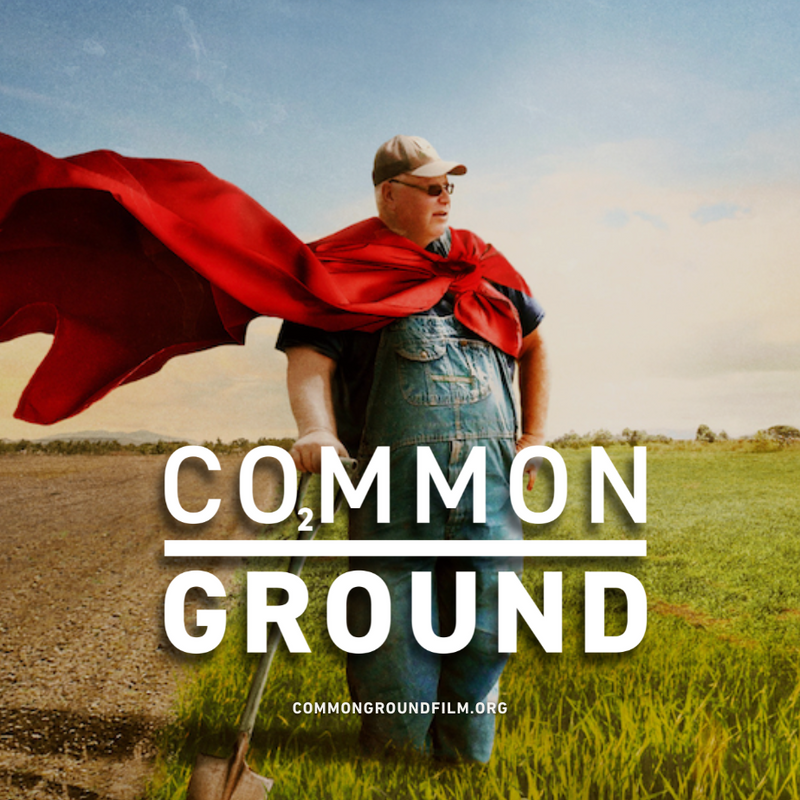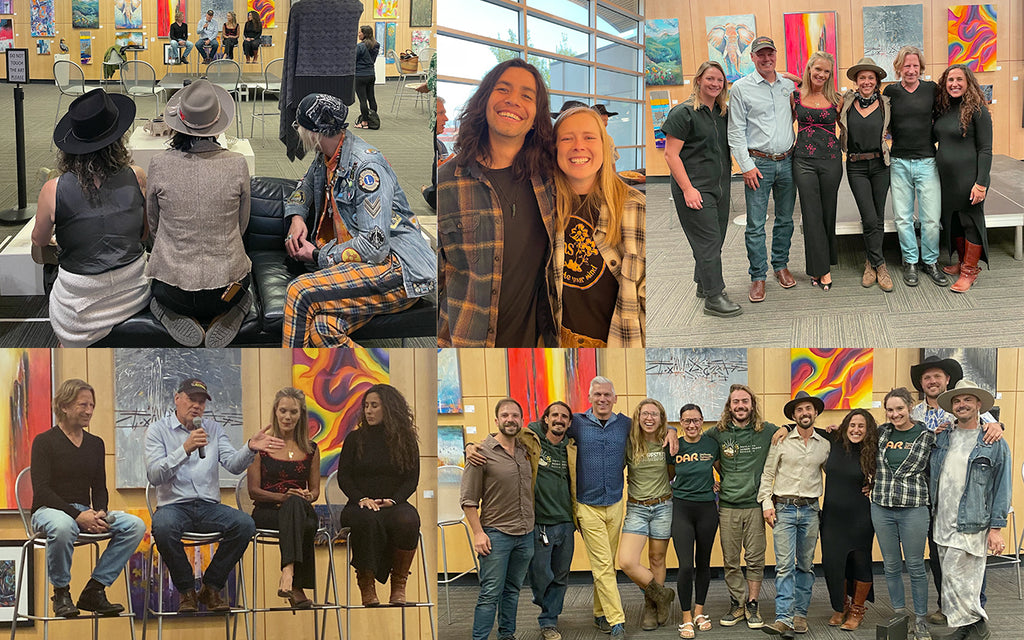
At the beginning of October, we partnered with Kiss the Ground to co-host a screening of the eye-opening documentary Common Ground, which further energized us to continue our regenerative journey. This important film covers the history of farming and the extreme impacts of how we farm today on human, community, and planetary health. Most importantly, it discusses regenerative agriculture as a solution that enlivens the soil and our ecosystems by going back to native, holistic land management practices.

A few photos of friends & family from the night of the showing.
Here at Cappello’s, we understand that our work impacts our food system for future generations. It’s a responsibility we feel passionate about and honored to hold, which is why we’re taking steps towards a regenerative future. Although some of the following takeaways are daunting, we know that regenerative practices can help solve or mitigate most of these issues.
Takeaways that shook our ground:
-
Soil: Traditional agricultural practices are destroying our topsoil through tilling, a common practice in all industrial farming. Tilling breaks the root systems in the soil and makes it easy to lose that land to wind or water runoff. In fact, our topsoil is very difficult to rebuild— it can take up to 100 years to rebuild just one inch of it!
Our topsoil could be one of our most precious resources when it comes to sequestering the atmospheric carbon we’re producing that is warming our planet. Most of the 35B tons of carbon we produce per year is due to the burning of fossil fuels. Using regenerative practices on our soils alone could bring this to net zero! Gabe Brown, a regenerative farmer, puts it bluntly:
“Soil health literally means human and planetary health. If we would cover the earth in a biodiverse array of plants and animals and insects, we wouldn’t hear about climate change anymore. We wouldn’t have this human health crisis. We would have food that is truly nutrient dense.”
-
Farmers: For every $1 we spend on food, $.08 goes to the farmer. In other words, as American farmer Joel Salatin said at a recent conference, if farmers worked for free or didn’t get paid at all, our food cost would only change 8%!
American taxpayer dollars are funding the extractive farming methods we use today and are perpetuating high rates of farmer debt, which likely is in some way correlated to this alarming fact: suicide rates of farmers are higher than any other occupational group and 5x higher than the general population. Clearly, something is broken in this system that needs to be fixed in order to support the farmers and communities who grow our food.
Relying on government subsidies doesn’t have to be the way our farmers support their operations. For example, farmer Rick Clark has invested in farming equipment like air seeders (or no-till drills) and roller crimpers to be able to implement regenerative practices at scale. He has not taken a US subsidy since 2019 and through these practices has an annual savings of $2M!
- Chemicals: Instead of fostering the land so it can take care of itself naturally, industrial agriculture uses harmful chemicals to act as pesticides, herbicides and fertilizers, which impact our native bee populations that are integral in supporting our natural food chain. Human health is also affected by these chemicals. For example, glyphosate, a chemical herbicide found in RoundUp, is increasingly linked to severe cases of non-hodgkin lymphoma, one of the most common cancers in the US. In fact, glyphosate is so prevalent in our environment, it has been found in tap water, urine, and even breast milk.
We’re invested in continuing to deepen our relationship with the principles of regeneration to understand how they apply to our sourcing, how we interact in the food system and our community, and how we work. We’re founding partners in The Almond Project, a multi-stakeholder, farmer-led partnership committed to implementing and studying regenerative farming practices on almond orchards in the San Joaquin Valley of California. Also, we’re proud to be sourcing regenerative and organic buttermilk from our partners at KalonaSuperNatural. We know there is more work to be done and we are moved by the momentum this film is supporting to bring us all into a brighter future together.
We encourage anyone who relies on our food system to feed themselves (literally every human!) to watch this documentary. It will change the way you look at our food system and perhaps compel you to support the changes necessary to move toward a regenerative future. If you do watch it, we’d love to hear your thoughts. You can email us at talk@cappellos.com or DM us on instagram @cappellos.
To find a showtime near you, visit commongroundfilm.org.